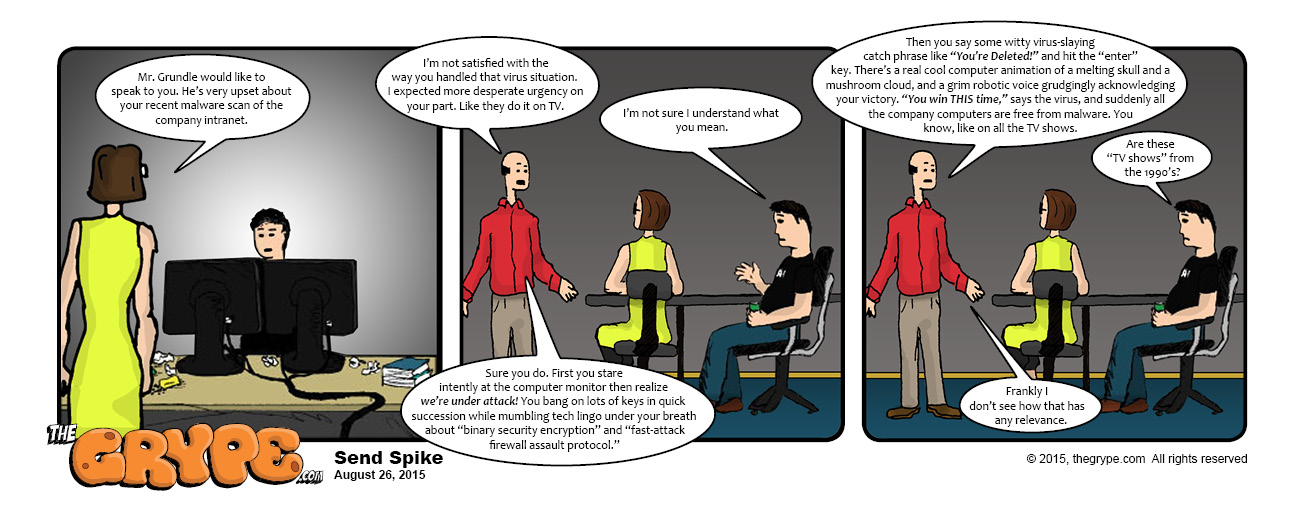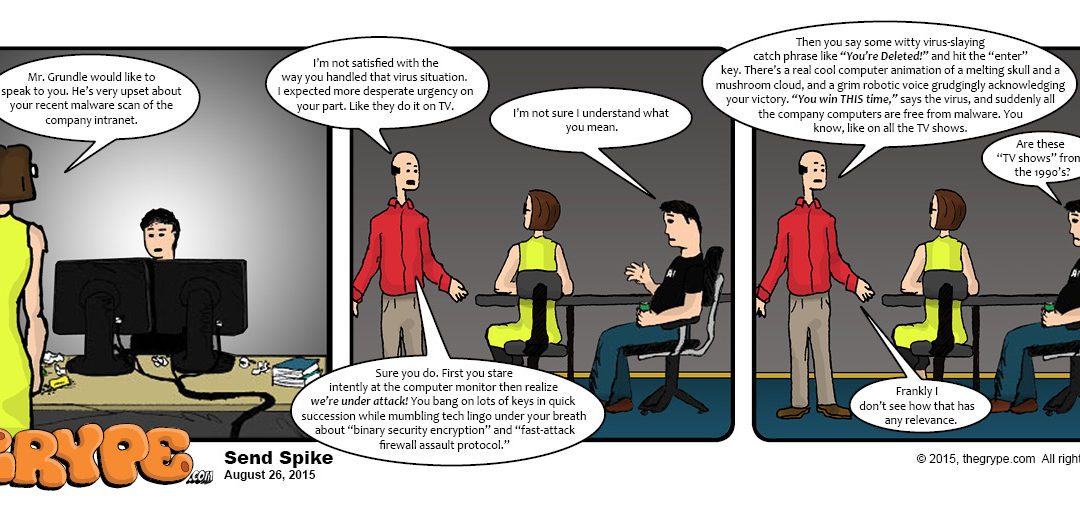 All serious cognitive interchange begins with assumptions, proposals, ideas, concepts, and theoretic modeling.
All serious cognitive interchange begins with assumptions, proposals, ideas, concepts, and theoretic modeling.
What occurs afterward, when such matters are examined (and to what manner of testing— assuming there is testing at all— those ideas are subjected) determines their provable truth value. The importance of which may be subjective to people in general, but some measure of which is presumed to exist among those involved in the exercise. Meaning that if one is not willing, from the start, to admit the possibility that one’s presumptions might be incorrect— and if one therefore refuses to alter them or accept alternate possibilities based upon the weight of the evidence presented in favor of an alternative explanation— then no actual debate or real exchange of information is occurring, and the exercise is a futile waste of time.
I find it personally disconcerting that such a high percentage of what people argue about, both on the internet and off, is actually untestable and unfalsifiable, and is therefore inarguable. I suspect it is a human failing that people are so adamant that others accept as fact their personal version of beliefs that cannot be tested or proven. As if “lack of evidence” can be overwhelmed by sheer argumentative word volume.
Of course I don’t require firm evidentiary rigor for all of my personal human interaction or discourse; only in the area of “debate,” when two competing theories are being compared and contrasted, supposedly with a goal of establishing which theory or hypothesis is more likely the correct explanation of an observable effect.
Some things should be outside the realm of reasonable debate— items whose basic principles have been so firmly established they can’t be further argued. I can’t see myself ever locking horns with another arguing over the existence of gravity, for instance, or whether or not light can be weighed or measured. That stuff is hardly debatable; all anyone needs do is crack a textbook. If someone professes to believe that light is actually magic fairy rays made from heart-shaped microscopic cereal marshmallows, I won’t deny their right to believe that. But I probably won’t expend any time or effort debating it with them, when a quick peek in an electron microscope will essentially settle the issue.
My personal position, rather, is that for anyone to expect me to utilize my time debating a particular issue with them becomes a waste of time when, for whatever, reason, they come with a closed mind intent on rephrasing the same opinions over and over, with either an unwillingness or inability to back up their statements with any evidentiary material that isn’t rooted in their own predisposed intractable point of view. Such interactions become mere exercises in endurance, and only test the participants’ ability and willingness to rephrase the same theories over and over again, as if mindless repetition somehow lends them further credence.
Also, any observable phenomenon can be inflated into a large enough theoretical sphere that it eventually results in an unprovable, unmeasurable, unanswerable conundrum. That’s the old “but why?” game.
“But why?” “But why?” “But why?” A useful tool to a point, until the scope of the question goes off the upper scale from what can be known into the thin, rarified air of what can only be theorized and subjectively believed. At which time all possibilities are equal in provable probability, and the entire matter becomes one of subjective faith.
Those are the matters that are ultimately so subjective they are inarguable. You can only agree on them, or if you can’t or don’t, the attempt winds up an empty exercise of shouting mouths and plugged ears.
I’m not arguing that metaphysics isn’t a worthy topic of discussion or research. Just that it is futile to engage in lengthy discourse with someone incapable of proving the objective truth of their subjective beliefs in an area where measurable evidence does not exist— and in such areas, we are ALL subject to the limitations of provability— yet who seems intent upon purveying their own beliefs in such areas upon others through rhetorical half-arguments and empty bombast.
Nor am I referring only to the metaphysical. It is unwise to attempt to plant the seed of knowledge in soil where it is not welcomed or free to grow. Debate and discussion are one thing. Proselytizing is another.
Many of those who seem most vehement about arguing on the internet seem to show up with empty sacks of hot air where their evidence should be. Or seem unable to extricate their arguments from insulting ad hominem references to people and things with which they disagree long enough to examine what is actually being said.
Once cannot teach a pig to sing, or so it is said. That’s why I have largely disengaged myself from lengthy diatribes on other people’s Facebook timelines these days. I’ve debated angry Christians and angry atheists, angry Muslims and angry feminists, angry liberals and angry conservatives, and rabid Dems and rabid Republicans. And though it has at times been enlightening, and most have presented, er… interesting viewpoints, it seems for the most part they only casually skimmed any of my responses to them, just looking for something to which they could take offense.
It turns out mostly to be digital graffiti. I elect to treat it as such, and I try to keep it off my wall.
Meanwhile, the argument goes on though none are enlightened. Perhaps because anyone who successfully wields a proven ability to really change the minds of others isn’t posting memes on Facebook. He or she is working for some marketing think tank and earning millions.
That’s why the suits are so desperate to figure out and co-opt “viral.” It bypasses the time-tested opinion factories and organically goes where the thought police cannot go.
But most of what you see these days as “debate” online isn’t truly information exchange; it’s confirmation bias, reworked as a lame form of egocentric public performance.

